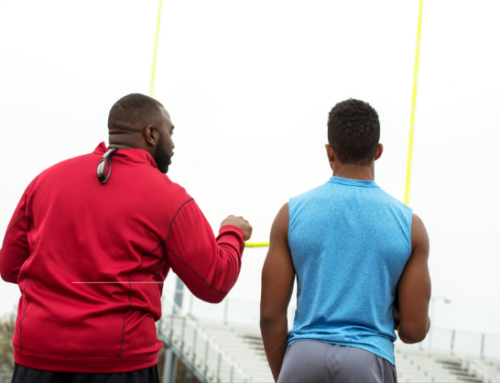The competition can be tough. Do you have what it takes?
With almost 400,000 high school softball players in the U.S., it might be hard to know where you stand as a recruit in the eyes of a college softball coach. That’s because what you’ve done in high school doesn’t always translate to success in college softball. And, while there are a number of measurables that have been developed by the National Fastpitch Coaches Association to be used for player evaluation, you may be able to get a general feel on where you’ll fit best in college softball by simply seeing how you compare to these standards.
NCAA Division I
Less than 2% of high school softball players will be able to compete at the Division I level. As a rule, Division I schools attract the country’s softball elite and the competition for scholarships can be intense. If Division I coaches are showing up at your travel games and are keeping in touch with your parents, you’re likely being recruited to play DI softball. But, even if you’re not seeing DI coaches at your games, you might still be Division I softball material if you have three to four years of high school varsity experience with at least two of those years as a starter. You’ve also played four to five years of high-level travel softball and, along the way, you’ve earned multiple all-conference, all-area, and all-state honors.
NCAA Division II
If you’ve gotten some consideration from Division I coaches but haven’t received any scholarship offers, then you could be a definite Division II softball recruit. Where a Division I prospect may possess elite-level skills at the plate and in the field, many Division II softball players are elite in one area and talented but not exceptional in the other area. If you’re not drawing much interest or any offers from Division I schools, keep going to camps, clinics, and showcases to improve your game and enhance your visibility as a recruit.
From a general experience standpoint, Division II usually recruits players that have played two or three years on their high school’s varsity team, with one or two of those seasons as a starter. In addition, DII softball coaches look for players with three or four years of experience on high-level travel teams and those who have been named all-conference and all-area several times. Multiple all-state honors isn’t always a requirement, but having made it once or twice, or even been recognized for honorable mention, always helps.
NCAA Division III and NAIA
You may likely hear from several Division III and or NAIA softball coaches during your sophomore and junior years of high school. If you do, make sure to keep in touch with them, regardless of what other schools may be interested in you. Doing so will allow you to build a network of coaches and that will give you more options when you do have to choose the school that fits you best. Remember that Division III schools don’t offer athletic scholarships, but most of them have plenty of academic scholarship money available, so make sure your academic numbers are just as impressive as your athletic stats.
While the talent and experience can vary in DIII and at NAIA schools, those coaches usually recruit players with two or three years of varsity high school experience who started for one or two years. In addition, coaches generally look for players with two or three years of travel team experience and those who have earned all-conference and all-area honors.
Beyond all those general parameters, remember that every coach evaluates players and positions differently, so don’t worry if you’re lacking some experience or awards. And don’t disqualify yourself if you’re not quite big enough or fast enough right now. Instead, focus on being the best softball player you can be, showing your abilities to college coaches, and letting those coaches project how you might continue developing in college at whatever level that may be.
Did you enjoy the article ‘Do You Have What College Softball Coaches Are Looking For’? If so, check out more of our articles HERE.





